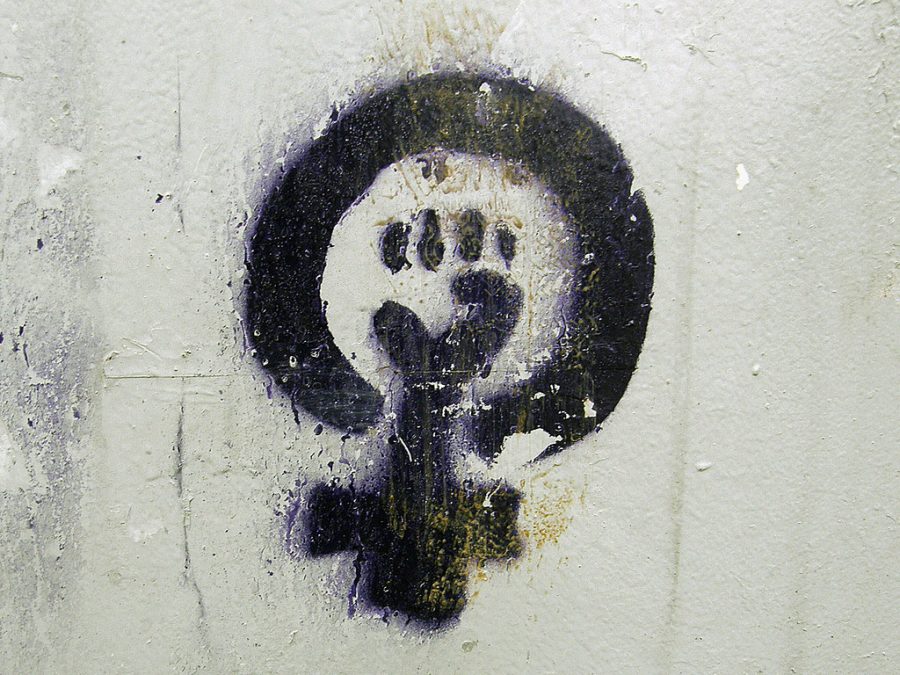The history of Women’s Equality Day
Members of the JCU community discuss their views on Women’s Equality Day.
Sep 12, 2022
Women’s Equality Day is a celebration of the triumphs of the women’s rights movement like voting rights and a massive march in 1970. However, the right to vote was not granted to all women, women still had to fight for equal rights in 1970, and there have been renewed attacks on voting rights in recent years, illustrating that the fight is far from over.
Aug. 26, Women’s Equality Day, celebrates the day in 1920 when the 19th amendment, granting women everywhere the right to vote, was certified by the United States Secretary of State. For the first time, women in every state were given a chance to make their voices heard through voting. The fight for women’s suffrage was decades long, beginning at the Seneca Falls Convention in 1848. The women’s suffrage movement gained more traction during and after World War I, in part due to the important role women played during the war effort. These factors eventually culminated in the passing of the 19th amendment. Women’s suffrage got them a step closer to equality with men.
However, it is important to note that the right to vote was not granted to all women in the United States. For example, many black women – particularly in the Jim Crow South – were prevented from exercising this right. It wasn’t until the passage of the Voting Rights Act in 1965 that women’s suffrage truly became universal. Aug. 26 itself was not designated as Women’s Equality Day until 1973 through the advocacy of Representative Bella Abzug, a leader in the women’s liberation movement of that era.
By that time, Aug. 26 held further significance for the broader women’s rights movement. Three years earlier, on that day in 1970, the National Organization for Women (NOW) organized a women’s strike day. It encouraged women to refuse to work, and especially to refuse to perform any household or childcare duties. The day culminated in a massive protest of roughly 50,000 women marching down Fifth Avenue in New York City. They were protesting the continued marginalization of women, especially the relegation of women to the household.
By 1973, Women’s Equality Day would come to honor two times women fought tirelessly for equal rights and treatment and it illustrated that the fight did not end with the passage of the 19th amendment in 1920. Women’s Equality Day must be honored as an important step in the women’s rights movement, but in the spirit of that idea, we must recognize that there is still a long fight ahead to ensure equality for all women.
We asked influential people in the John Carroll community to answer this question; How has the 19th Amendment and the right to vote affected your life? In what other ways have you been civically engaged? Here are their responses:
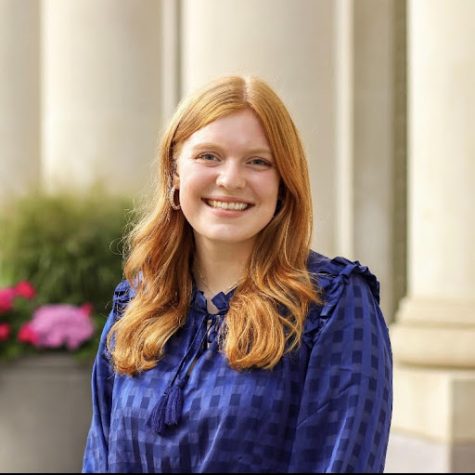 “The 19th Amendment and the right to vote is a constant reminder that we have a voice, whether it be in small discussions, leadership roles, or within our society. The right to vote is not only a reminder that we have a voice – it is our voice. While my civic engagement stems from the right to vote, it also manifests itself in so many other ways, such as volunteering to participate in Labre on Friday nights, making simple sustainable swaps, like limiting single-use plastics, and educating myself on issues that might not directly affect myself, but have an impact on society as a whole.”
“The 19th Amendment and the right to vote is a constant reminder that we have a voice, whether it be in small discussions, leadership roles, or within our society. The right to vote is not only a reminder that we have a voice – it is our voice. While my civic engagement stems from the right to vote, it also manifests itself in so many other ways, such as volunteering to participate in Labre on Friday nights, making simple sustainable swaps, like limiting single-use plastics, and educating myself on issues that might not directly affect myself, but have an impact on society as a whole.”
Grace Kilfoyle 23′
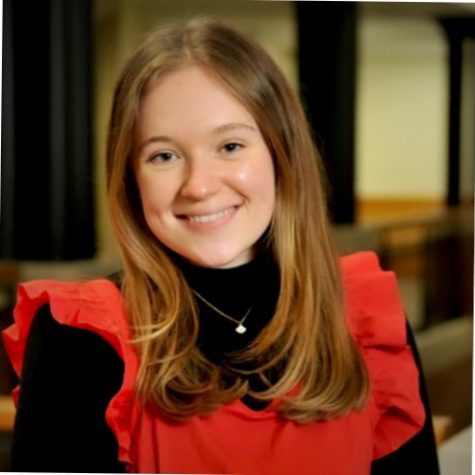 “The 19th Amendment and the right to vote have empowered me, as a woman as they both show that women advocating for their rights have worked in the past and that we can still advocate for future progress to reach gender equality today. After this past summer, women’s rights issues have been in the spotlight more than ever, and with the right to vote, we have the ability to vote for officials who will protect our rights. To date, women’s voting rights have helped women all across the nation progress toward economic security, enacted laws to protect women’s rights in divorce, and so much more, which as someone who greatly values my independence, means a lot to me. There is a lot of progress that still needs to be made in terms of gender equality, but I am grateful for the ability to use my voice to advocate for women like myself as well as other marginalized groups who are still silenced through voter suppression today. My individual civic engagement stems beyond gender equality as there are so many social justice issues that deserve our time, attention, and advocacy. Take the time to educate yourself on issues in your community, nation, and around the world, and use your voice to help others.”
“The 19th Amendment and the right to vote have empowered me, as a woman as they both show that women advocating for their rights have worked in the past and that we can still advocate for future progress to reach gender equality today. After this past summer, women’s rights issues have been in the spotlight more than ever, and with the right to vote, we have the ability to vote for officials who will protect our rights. To date, women’s voting rights have helped women all across the nation progress toward economic security, enacted laws to protect women’s rights in divorce, and so much more, which as someone who greatly values my independence, means a lot to me. There is a lot of progress that still needs to be made in terms of gender equality, but I am grateful for the ability to use my voice to advocate for women like myself as well as other marginalized groups who are still silenced through voter suppression today. My individual civic engagement stems beyond gender equality as there are so many social justice issues that deserve our time, attention, and advocacy. Take the time to educate yourself on issues in your community, nation, and around the world, and use your voice to help others.”
Emma Kosicek 23′
 “As a Syrian-American citizen, having the right to vote has been incredibly important to not just myself, but my family as a whole as I have family scattered across the world that is affected by our country’s actions. With the United States being as powerful as it is, I always make sure to remain politically active by exercising my right to vote. The world we live in is filled with corruption but the ability to educate myself on potential candidates and always vote for those that support the protection of basic human rights is a privilege that many do not have. For that reason, I am a strong believer in being the voice for others. Most people take one look at me and tell me, “you’re too young to make a difference” or “you should focus on raising a family instead of becoming a doctor.” While women did not always have the right to vote, it is important now more than ever that we not only protect that right but continue to advocate for women’s rights and equality. I do my best to remain as civically engaged as possible by educating those around me on current events, writing to local senators and government officials regarding relevant legislation, and working with numerous non-profits to advocate for justice.”
“As a Syrian-American citizen, having the right to vote has been incredibly important to not just myself, but my family as a whole as I have family scattered across the world that is affected by our country’s actions. With the United States being as powerful as it is, I always make sure to remain politically active by exercising my right to vote. The world we live in is filled with corruption but the ability to educate myself on potential candidates and always vote for those that support the protection of basic human rights is a privilege that many do not have. For that reason, I am a strong believer in being the voice for others. Most people take one look at me and tell me, “you’re too young to make a difference” or “you should focus on raising a family instead of becoming a doctor.” While women did not always have the right to vote, it is important now more than ever that we not only protect that right but continue to advocate for women’s rights and equality. I do my best to remain as civically engaged as possible by educating those around me on current events, writing to local senators and government officials regarding relevant legislation, and working with numerous non-profits to advocate for justice.”
Selena Alamir 24′
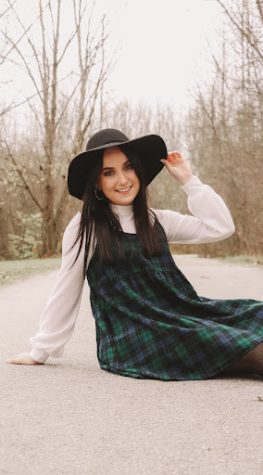
“Without the 19th amendment, I would not be here at JCU today. Having an empowered voice in society has inspired me to become a female leader in the political sphere working to speak up against injustice for those who have been historically oppressed. Don’t let America move backward, exercise what many women around the world are still fighting for today.”
Sydney Burger 25′
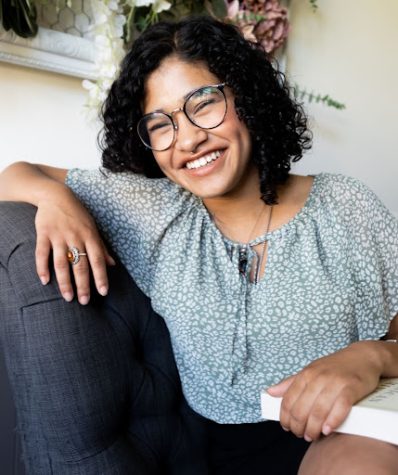 “Empowered women empower women. The privilege of being an American woman allows me to vote in the interest of immigrant and refugee women who are left in uncertainty. The women I admire and associate myself with fall into these categories. Voting allows the voiceless to be heard. “It is called a democracy because not the few but the many govern”(History of the Peloponnesian War, Thucydides). Though I beg you to look through the lens of those who do not posse the liberty to execute this American value. The 19th amendment allows me to vote in favor of those who will advocate for those in the margins. Voting affects those I value most in my life; they are affected most by elections. Therefore, the right to vote is empowerment and a privilege. And it is our responsibility to use it to empower those who need to change the most. Our responsibility is to provide security and happiness to those who risk their lives to be here. Historically, Latinos have not participated in elections; most are not registered. My current civic engagement is encouraging Latinos to participate in upcoming electoral cycles. My community is mainly affected by deportation in Northeast Ohio; therefore, it is my civic duty to ensure that whoever is in the office is mindful of the current deportation crisis.”
“Empowered women empower women. The privilege of being an American woman allows me to vote in the interest of immigrant and refugee women who are left in uncertainty. The women I admire and associate myself with fall into these categories. Voting allows the voiceless to be heard. “It is called a democracy because not the few but the many govern”(History of the Peloponnesian War, Thucydides). Though I beg you to look through the lens of those who do not posse the liberty to execute this American value. The 19th amendment allows me to vote in favor of those who will advocate for those in the margins. Voting affects those I value most in my life; they are affected most by elections. Therefore, the right to vote is empowerment and a privilege. And it is our responsibility to use it to empower those who need to change the most. Our responsibility is to provide security and happiness to those who risk their lives to be here. Historically, Latinos have not participated in elections; most are not registered. My current civic engagement is encouraging Latinos to participate in upcoming electoral cycles. My community is mainly affected by deportation in Northeast Ohio; therefore, it is my civic duty to ensure that whoever is in the office is mindful of the current deportation crisis.”
Rivera Cruz 25’


